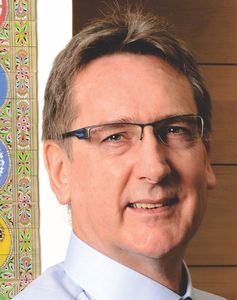What is your assessment of India’s response to COVID-19?
At the onset of the outbreak, India took COVID-19 seriously and responded pre-emptively. India's response has been graded and accentuated by political commitment at the highest level. The Prime Minister’s Office has led the preparedness and response measures against COVID-19, mobilising all ministries while strategically empowering the Ministry of Health and Family Welfare (MoHFW) which effectively mobilised states. This is good example of a ‘whole of’ government and society approach.
Strong interventions included early travel advisories, mandatory airport screening, contact tracing, expanding and strengthening the surveillance and testing, complemented with uniform implementation of physical distancing measures throughout the country in March.
Going forward, what should be India’s testing strategy?
Testing is an important component of surveillance. It guides treatment, contract tracing, isolation as well as resource allocation. It was indeed important that the testing strategy was broadened, and now includes symptomatic health workers and all hospital patients with Severe Acute Respiratory Infection. It has also been expanded to Influenza-like-illness (ILI) patients from hotspots areas.
Starting with a dozen COV centres in February, the country rapidly ramped up its capacity, and today ICMR has sanctioned more than 200 public sector laboratories. Private sector engagement is crucial for increasing India’s capacity for testing, and currently there are about 90 accredited private laboratory chains capable of conducting RT-PCR (reverse transcription polymerase chain reaction). This will be further expanded.
It is encouraging to note that the Empowered Group (EG) under the PMO, has clear plans to further expand India’s capacity to test.
How is the WHO supporting India?
The WHO is supporting India at all levels of the health system—national, state and district level. We are providing policy advice at the central level, working closely with National Centre for Disease Control, Indian Council of Medical Research and NITI Aayog. This includes advice about surveillance, infection prevention and control, containment strategy, testing, quality control and laboratory supplies, guidelines and protocols, risk communication and community engagement. We are encouraged that India is participating in the global initiative—WHO Solidarity Trial—for treatment and vaccines. Through this collaboration, Indian researchers and institutions will participate in a global initiative to test therapeutics, standardise regulatory approaches on innovative trial designs and define the criteria to prioritise treatment protocols.
In addition, our field staff are now fully engaged in all aspects of the fight against COVID-19, including surveillance with IDSP, contact tracing, hospital assessment, capacity building and support to national rapid response teams in the containment of outbreaks. WHO is fully committed to support Government of India in its fight against COVID-19.
In what ways can strengthening of surveillance help a country such as India?
As states are in different stages of the outbreak, the surveillance system will be key in early detection and response to new cases. The ongoing, systematic collection, analysis and interpretation of Covid-19 data through surveillance will guide the disease management and control measures in India, especially as we move away from the lockdown. This will be crucial to flatten the curve.
What is the update on drug and vaccine development?
WHO is coordinating both drugs and vaccine development the at global level and we are very proud that India is an important partner in both. India will be a part of the Solidarity Trial. Through this collaboration, Indian researchers and institutions will participate in a global initiative to test therapeutics, standardise regulatory approaches on innovative trial designs and define the criteria to prioritise treatment protocols. WHO has prequalified diagnostics that are being used all over the world, and there are more in the pipeline. WHO looks forward to supporting India in operationalising the national and regional trial coordination sites, providing oversight, undertaking trainings and facilitation among others.
Furthermore, a global Covid-19 accelerated vaccine venture has been established and the WHO will coordinate an unprecedented partnership of stakeholders, which is needed to align the ecosystem around a dedicated vaccine master plan, for speed of innovation and scale of delivery.


